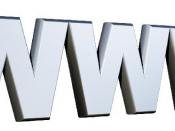There are so many instances in life where ethics play a major role in decisions that business's and we make. Ethics also can determine the way companies use technology to make decisions and determine the level of stress that is imposes within an organization. Ethical decision making processes take place mostly when conclusions are reached that directly effect people, but what are ethics? The Random House-Websterùs Dictionary of Modern English defines ethics as: The branch of philosophy dealing with values relating to human conduct, with respect to the rightness and wrongness of actions and the goodness and badness of motives and ends. This paints a pretty clear picture of what it means to make ethical decisions.
When employees in organizations make decisions to act unethically, they affect not only the company itself, but also its shareholders, employees and customers. Employees make a myriad of choices every day in businesses -- if unethical, they can damage a company's productivity, profits and reputation.
Unethical decisions can come in many forms: the employee who conducts personal business on company time to the line worker who fails to report a product flaw just to meet a deadline, and even more serious, the manager who profits from illegal use of insider stock information. All these incidents lack ethics. In most companies today, the competitive advantage rests on the shoulders of its employees. These employees must be trusted to "do the right thing", especially when no one is looking. It is up to HR to train, educate and communicate with employees on what is considered to be right and wrong in the workplace. After all, ethics is one topic that begins and ends with people.
This sounds like if you just follow your conscience then it would be fairly easy to come up with the right...


